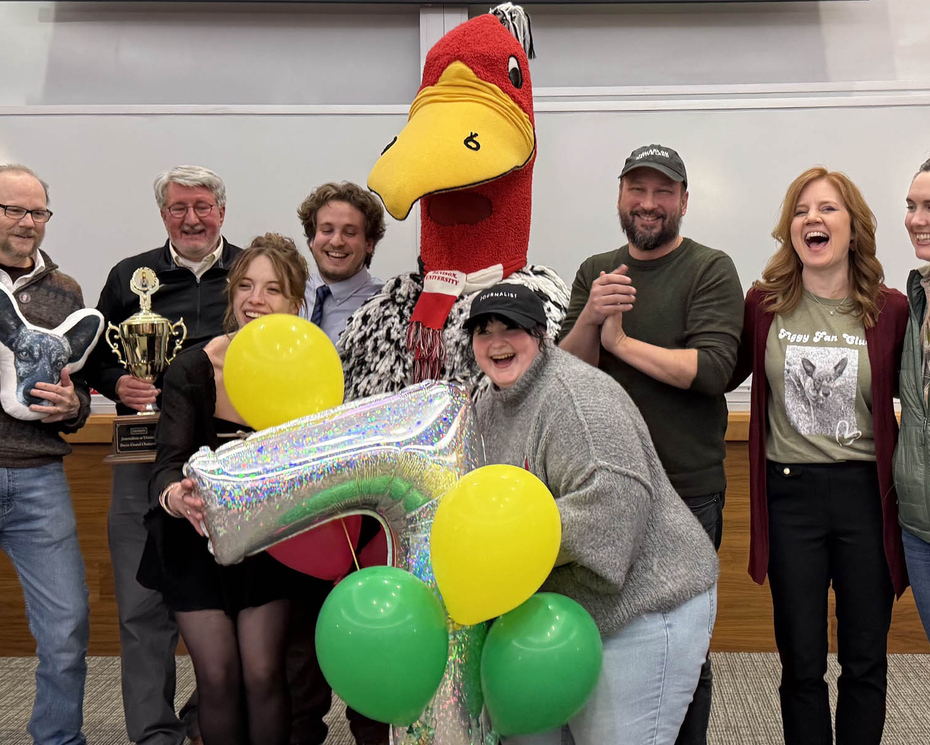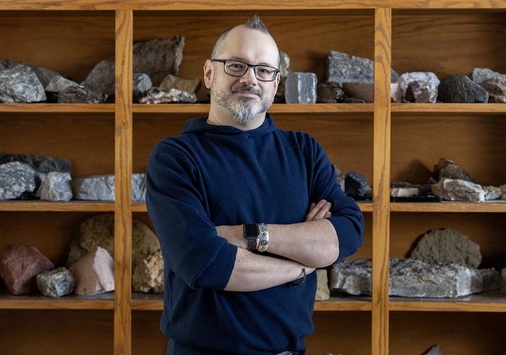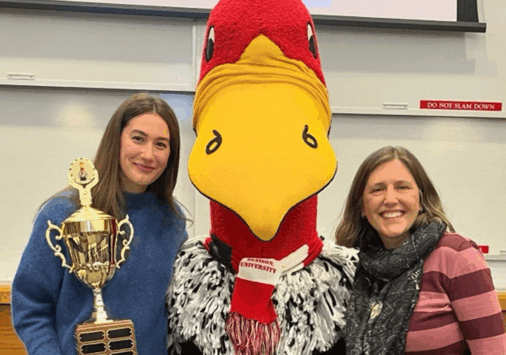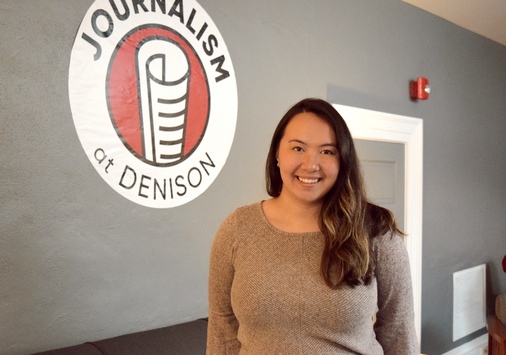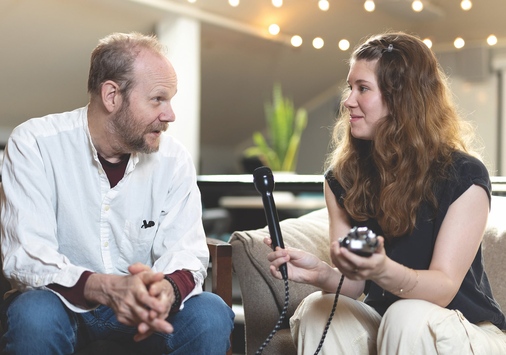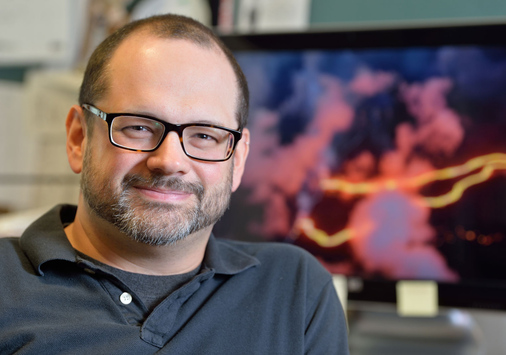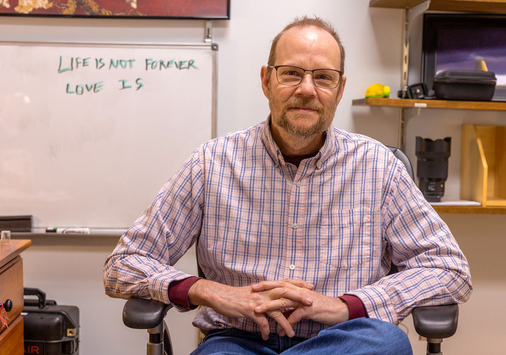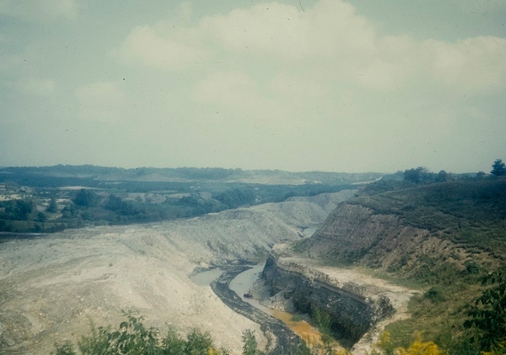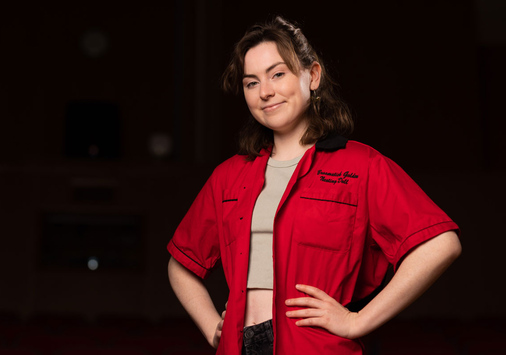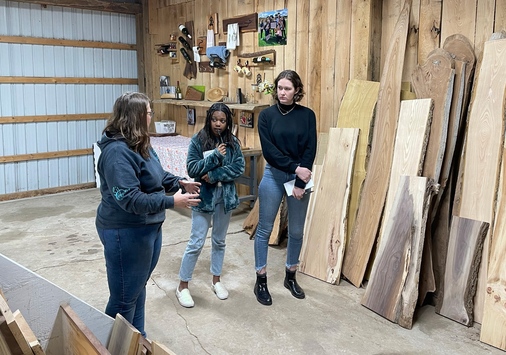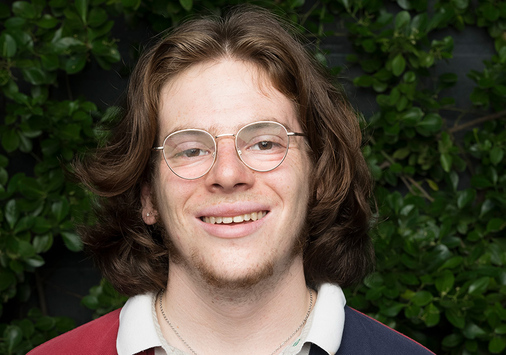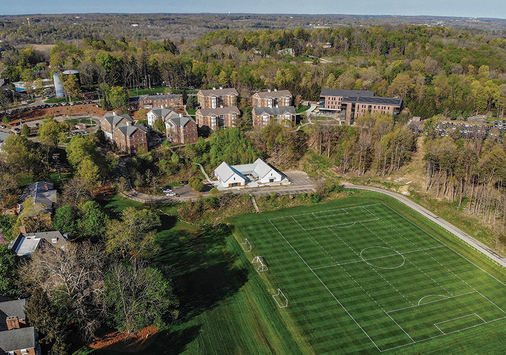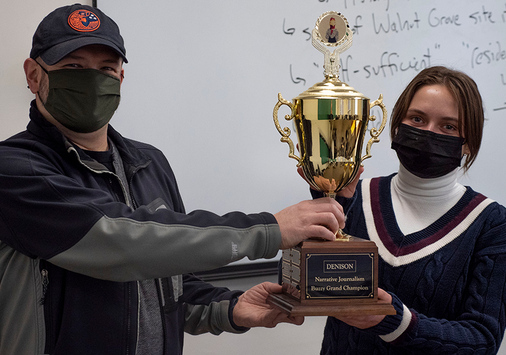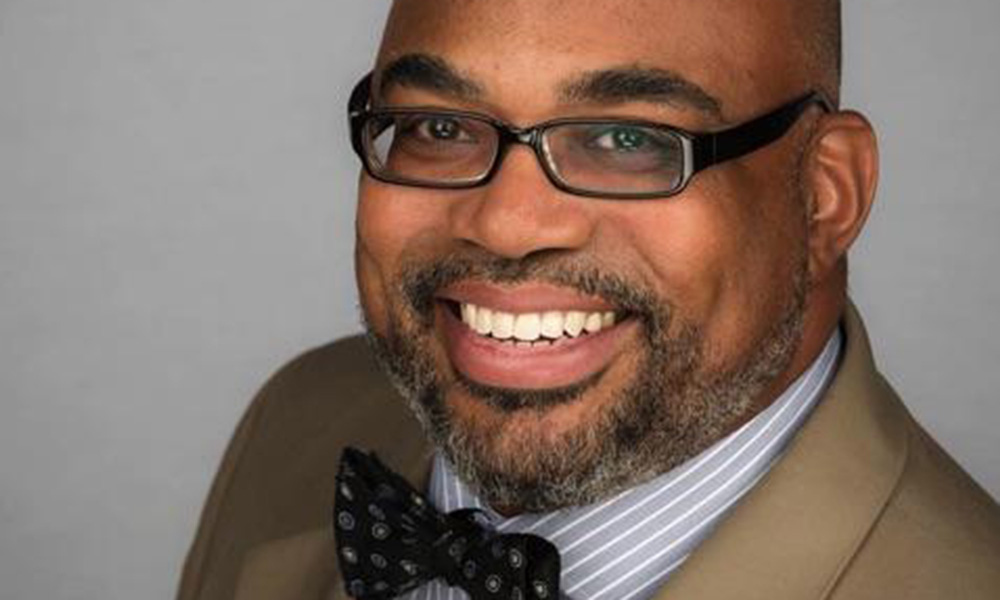
Jesse Holland has had a long career basking in journalism and writing nonfiction books and novels. What has guided him along the way is his curiosity, most of his projects spawning from a question of his own.
“All of my books are an answer to a question that I had,” said Holland, during a virtual conversation moderated by Mellon fellow Maggie Messitt.
The online event was part of a Happy Hour series that connects journalism students with acclaimed writers and reporters. While Denison’s campus is closed amid the Covid-19 pandemic, students log into an online portal for a live video conversation with the guest of the week.
Jesse Holland was one of the first African American journalists assigned to cover the Supreme Court full-time and was the Race & Ethnicity reporter in DC for the AP from 2000 to 2019. Holland is the author of Black Men Built The Capitol: Discovering African American History In and Around Washington, D.C. (2007); The Invisibles: The Untold Story of African American Slaves in The White House (2017); Star Wars: The Force Awakens - Finn’s Story (2016); and Black Panther: Who Is The Black Panther? (2018), the first novel featuring Marvel Comics’ first black superhero, nominated for an NAACP Image Award in 2019 for Outstanding Literary Work - Fiction. He is now the Saturday morning host of C-SPAN’s Washington Journal and a 2019-2020 Distinguished Visiting Scholar-in-Residence at the Library of Congress.
He explained that the idea for his book Black Men Built The Capitol: Discovering African American History In and Around Washington, D.C. (2007) stemmed from living in D.C. and taking part in the capital’s tourism with his mom, when she asked, “Where’s the Black history of D.C.?”
Through deep research, Holland investigated that question to find an answer.
“The Capitol is an African American monument, because they [the federal government] used slaves to build the Capitol, so is the White House. But, no one ever talks about that,” said Holland.
When he couldn’t find a book about how slaves built the U.S. Capitol building, he decided to write it himself.
Applying the research and reporting skills gained from working as a journalist, he wrote Black Men Built The Capitol by sifting through documents from the National Archives and the Library of Congress. Among evidence of the federal government renting slaves were receipts, expenditures, medical bills, and newspaper ads for slaves who had escaped the capital grounds.
“It’s exactly what journalists do — we take all these tiny details and try to make a coherent narrative,” Holland said of working on Black Men Built the Capitol.
After the experience of writing a heavily researched book, he knew he wanted to get better at storytelling, he said. So, he decided to pursue an M.F.A. in creative nonfiction.
“I knew I could do research, write journalistically. But, I didn’t know if I could sustain a narrative over 75,000 words,” said Holland.
Beginning as his thesis at Goucher College, Holland wrote the book The Invisibles: The Untold Story of African American Slaves in The White House (2017) as a deeply narrativized work.
Blending components of traditional journalism and narrative writing, Holland’s work relates to the multifaceted storytelling that students pursue through the journalism program at Denison.
He said his best advice to students is, “Always tell people what you’re working on because you never know who might have the information that you need. Be loud and proud.” He has discovered many sources that strengthen his stories by talking to people, whomever happens to be in his path, about the subjects he is interested in.
Holland’s commitment to following his curiosities and engaging with communities has led to a successful career as a journalist and author capable of telling untold stories.
The Happy Hour series for journalism students at Denison is funded in part by the Andrew W. Mellon “Writing in Place” initiative and a gift by alumna Sue O’Donnell.
